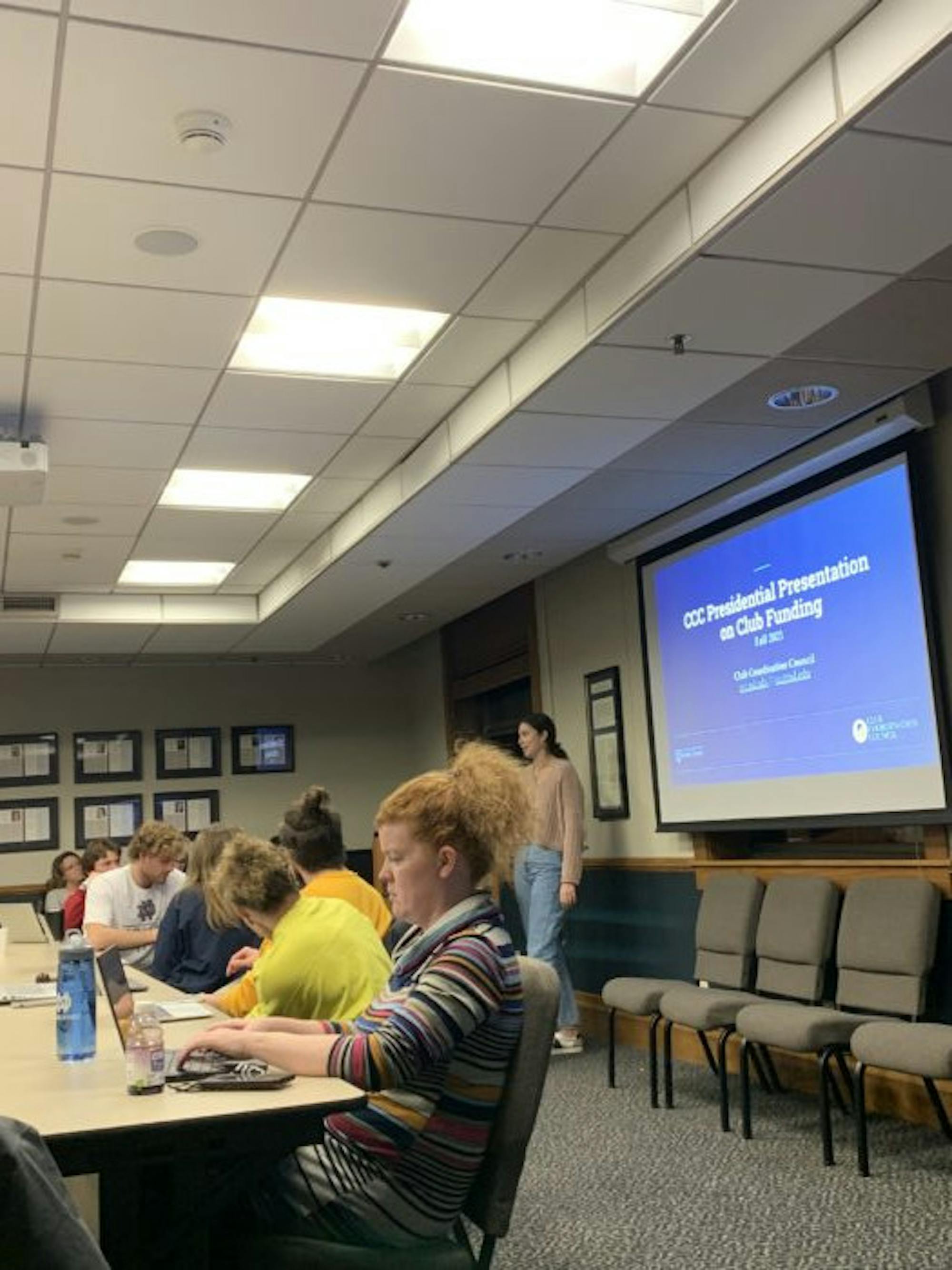The student senate kicked off their last meeting of the fall semester Wednesday evening on the second floor of the LaFortune Center. The agenda for the meeting consisted of a presentation from the Class Coordination Council (CCC) on funding and a debate regarding the need for the presence of priests-in-residence in dorms.
Student body vice president Matthew Bisner opened the meeting with a prayer. Senators then heard an update regarding ND Central — a new program that seeks to help students stay informed about events on campus so they can be more involved.
Starting January, students leaders will be able to enroll in the system. From that point on, the usage of this program will open up to the rest of the student body.
CCC president Maddie Tupy gave a presentation regarding club funding.
“CCC is a branch of the Student Union with the mission of helping clubs succeed; we help fund clubs with funding, consulting, event programming, transitions and many other things,” Tupy said.
Tupy went into the logistics of spring 2021 funding allocation. She further explained what made the spring 2021 allocations different from previous years.
After the CCC presentation, a resolution to recognize the need for priests in all residence halls was brought to the table. This resolution stirred many questions and debate among senators.
Lewis Hall senator Madeline Kosobucki, one of the authors of the resolution, spoke on the benefit of having priests in all residence halls.
“Having a priest-in-residence contributes to the community atmosphere of each residence hall, which is a unique aspect of our campus residence life system,” Kosobucki said.
This was a controversial topic among members of the senate. Farley Hall senator Annika Barron said she surveyed residents in her dorm, asking them whether they felt the need for a priest.
“In light of the question, it seemed like most people were kind of neutral about having a priest-in-residence, with some people feeling very strongly that they didn't want a priest,” she said.
Duncan Hall representative Christian Quilon, one of the authors of the resolution, questioned the survey results. He asked how many Farley residents had responded to the survey. Barron said around 30 members of her residence hall had filled out the survey.
Quilon said he considered that a small sample size and thus unrepresentative of the thoughts other students in the Notre Dame campus may have.
Some senators spoke up, saying that although it was a small sample size, those who answered the survey cared enough to do so — and as women living in a dorm, their voices should be heard.
The debate continued and solutions to the issue were offered during the discussion. Some members said priests should be assigned dorms — that they should have their own individual offices and should be available to students who want their spiritual guidance.
Ultimately, the debate was directed to a close and the proposition was tabled to the Department of Faith Services.













